UNESCO Chair Activities: 2018-2020
May 2018
May 3-4: Establishment of the UNESCO Chair at World Press Freedom Day
On May 3 at World Press Freedom Day in Ghana, the announcement of the award of UNESCO Chair on Media Freedom, Journalism Safety and the Issue of Impunity was made. The Chair, Professor Jackie Harrison, is the Head of the School of Journalism, Media and Communication at the University of Sheffield and is also the founder of the Centre for Freedom of the Media.
The chair is recognition of the increasing complexity and use of restrictions – lethal and non-lethal – ranged against a free and independent news media around the world. The on-going attacks on news journalism and journalists undermine freedom of expression and access to information
As part of World Press Freedom Day 2018, the UNESCO Chair and CFOM co-organied the Academic Conference on the Safety of Journalists together with UNESCO and the School of Information and Communication Studies, University of Ghana. In connection with the Academic Conference a Policy Lab was also held on the topic of national mechanisms for prevention, protection against and prosecution of violence against journalists: emerging models and their effectiveness. The UNESCO Chair and chaired a paper session on ‘Non-state actors and journalists’ safety’.
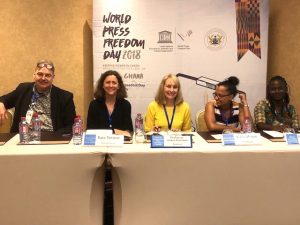
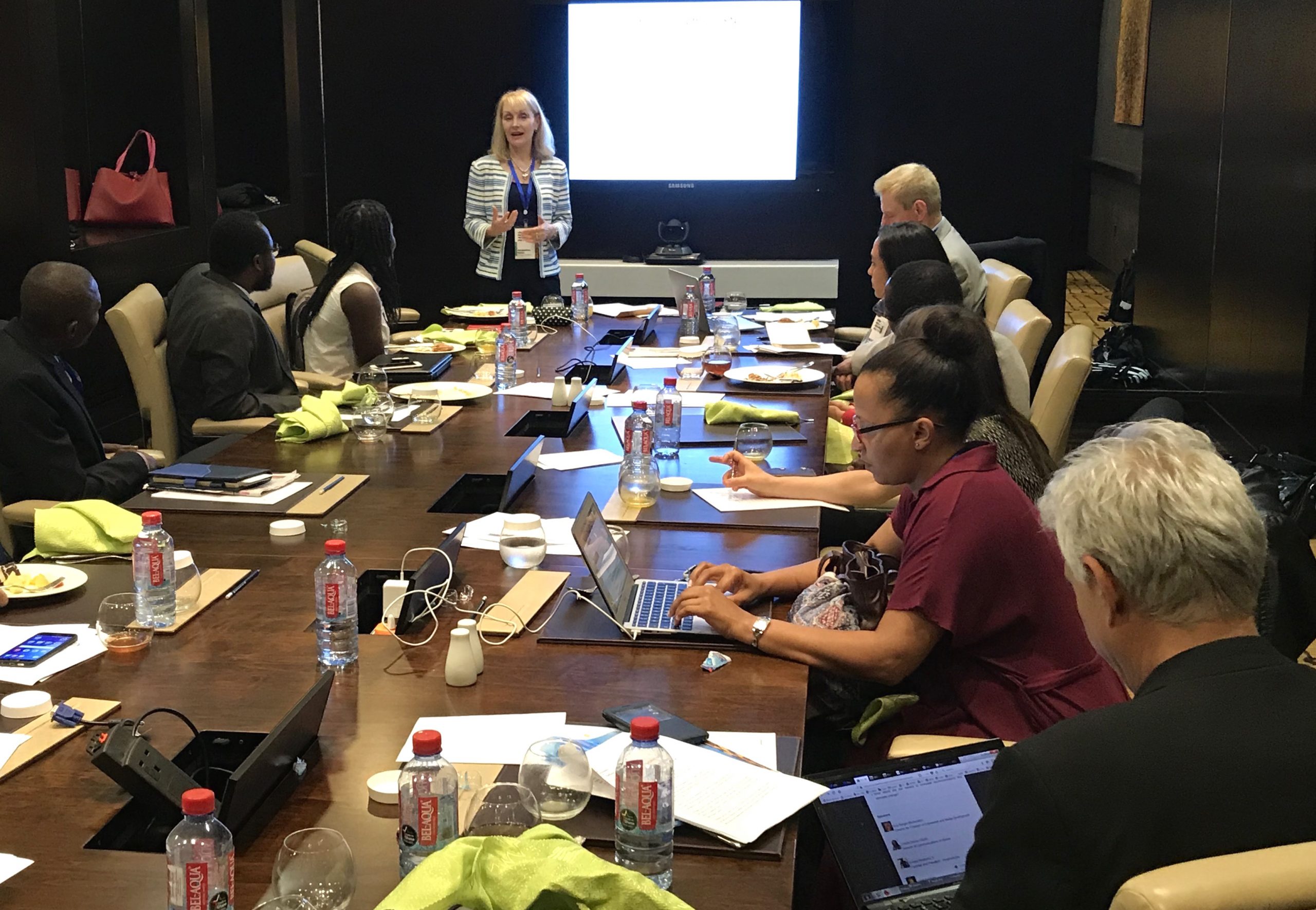
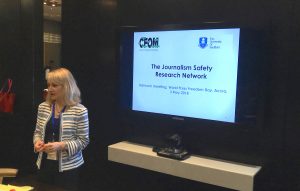
During World Press Freedom Day, the UNESCO Chair and CFOM also organised a network meeting for members of the Journalism Safety Research Network (JSRN) to gather ideas for continuing to develop the network and building research driven knowledge and capacity related to issues of journalism safety.
June 2018
June 22: Organisation of a JSRN panel at the International Association for Media and Communication (IAMCR) Conference
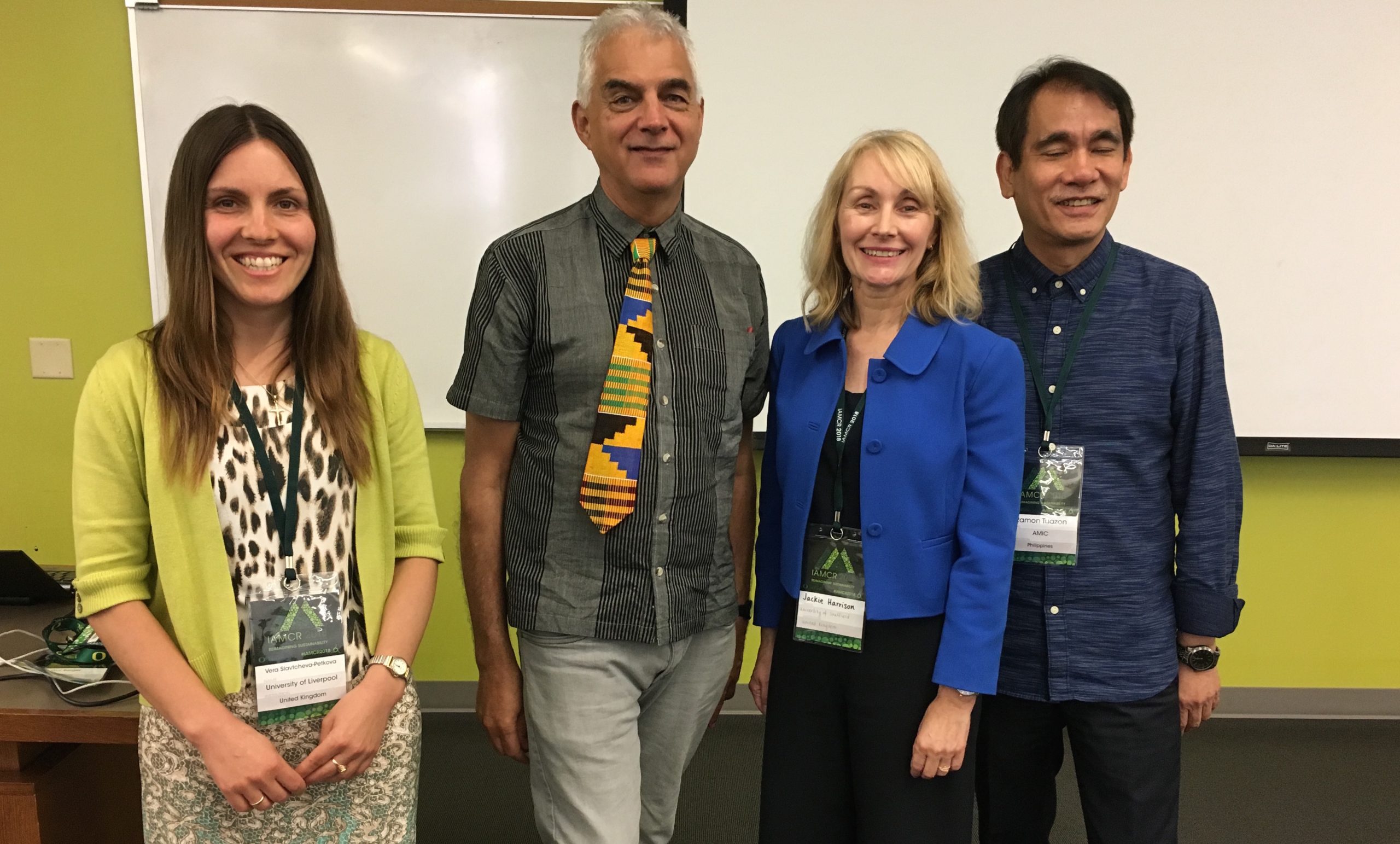
The UNESCO Chair in collaboration with UNESCO organised a JSRN panel: ‘Attacks on journalists and the issue of impunity: The fight for sustainable journalism against its civil diminishment’ at the IAMCR Conference in Oregon. The panel examined numerous topics and the UNESCO Chair spoke about environments hostile to journalsm in the context of civil sphere diminishment.
July 2018
July 14: UNESCO Chair organises Conference on the role of the factual media in post-conflict reconstruction
CFOM and the UNESCO Chair co-hosted a conference focusing on the role of the factual media in post-conflict reconstruction. Professor Jeffrey Alexander delivered a keynote speech which was then followed by a range of presentations by the UNESCO Chair and CFOM’s Professor Stef Pukallus focusing on the building of civil norms and the visibility of UN peacekeeping operations in the international news media. The conference was followed by a two-day academic workshop featuring a group of international scholars working on a common research agenda on peacekeeping operations.
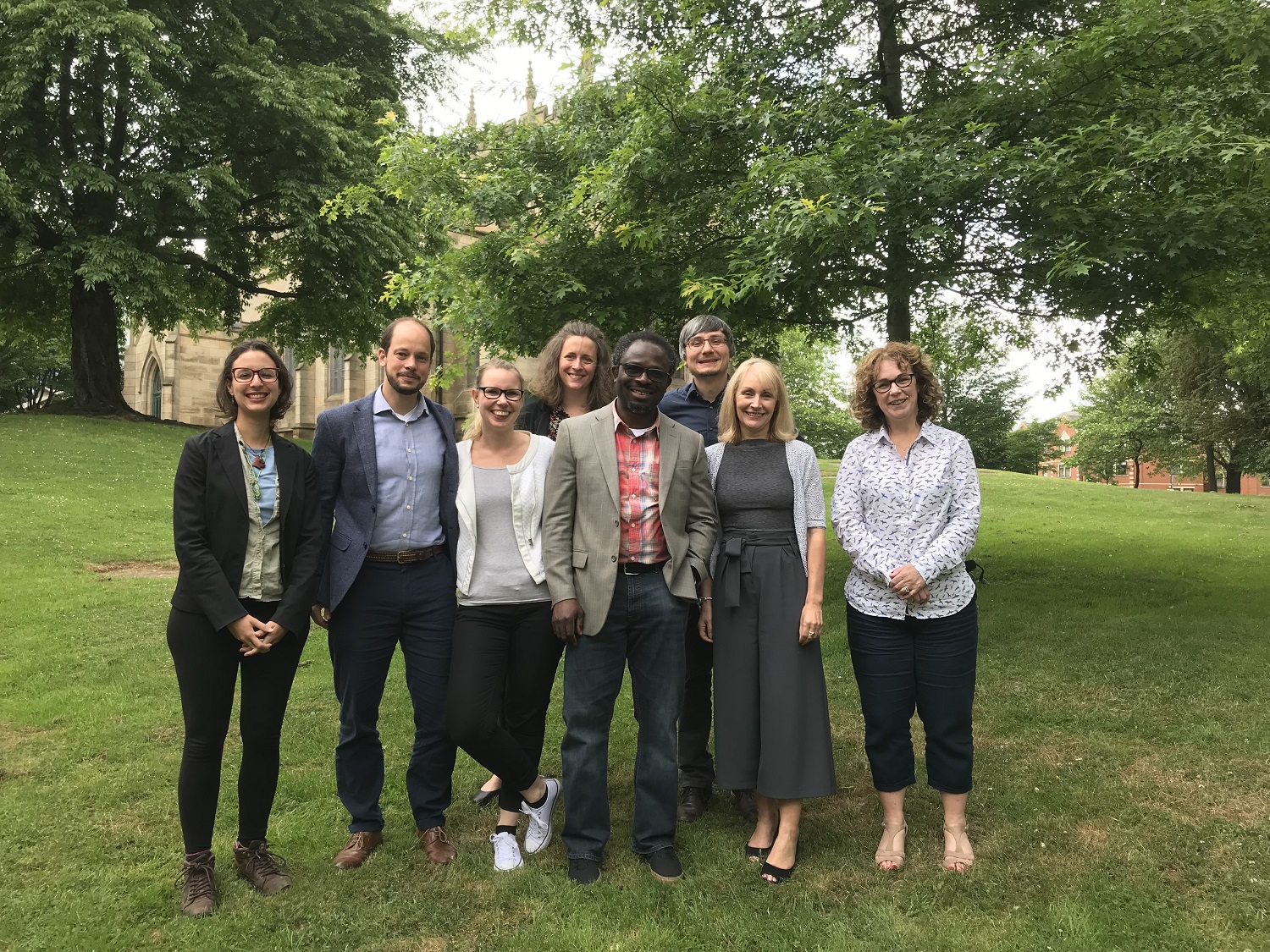
November 2018
November 5-9: International Journalism Week
The seventh annual International Journalism Week organised by the School of Journalism, Media and Communication with Centre for Freedom of the Media and UNESCO Chair on Media Freedom, Journalism Safety and the Issue of Impunity. The programme included talks and student workshops for journalists on various aspects on challenges and threats faced by journalists worldwide with speakers from BBC Media Risk, Pen International, Global Investigative Journalism Network and Thomson Reuters Foundation.
November 7: Innaugural Lecture of the UNESCO Chair
To mark the beginning of her term as UNESCO Chair on Media Freedom, Journalism Safety and the Issue of Impunity, Professor Jackie Harrison delivered an inaugural lecture where she examined the diminishment of the civil and truth-telling standard of news journalism through the use of oppression, violence and intimidation and more generally through the creation of an antagonistic environment where the news media are weaponised for political and commercial ends. You can watch the inaugural lecture here.
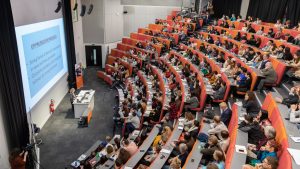
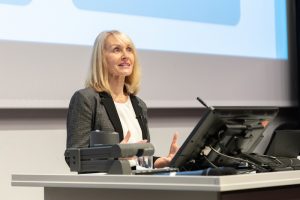
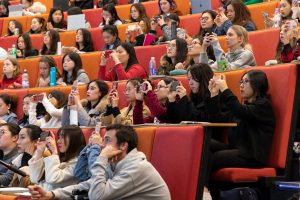
November 8: Commemoration of International Day to End Impunity
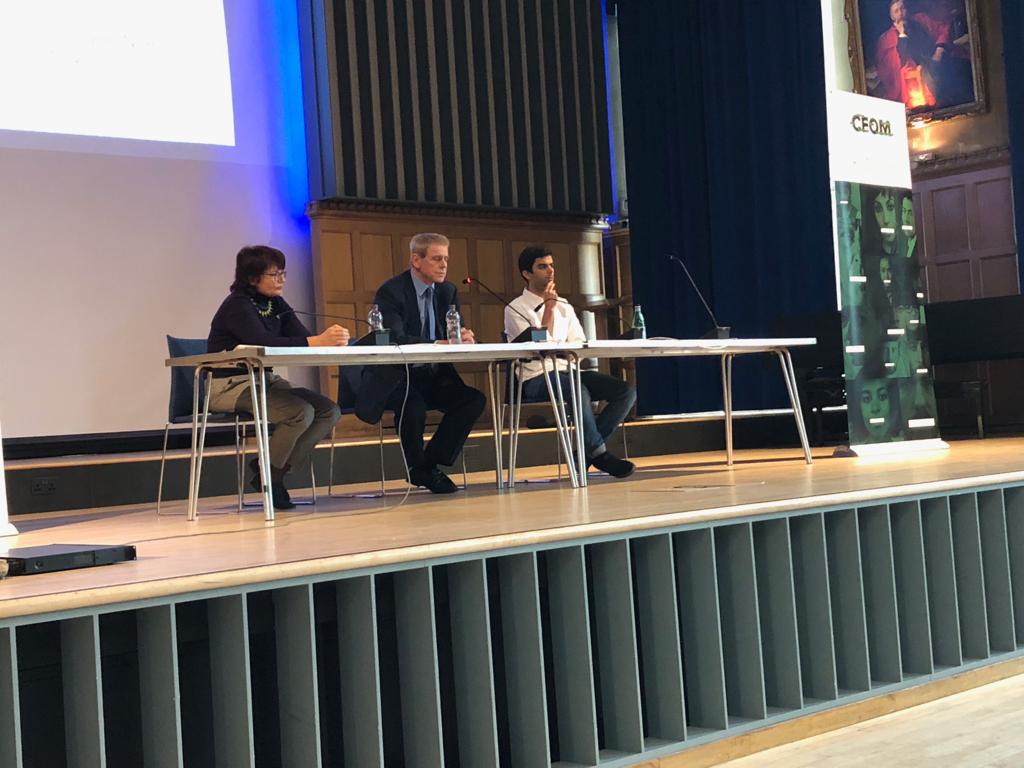
As part of IJW, and to commemorate International Day to End Impunity (IDEI) for crimes against journalists, CFOM and the UNESCO Chair held an expert panel entitled ‘Assault on press freedom – it’s getting worse. Why attacks on journalists spell danger for the rule of law and democracy’. Panel participants included Albana Shala, Chair of the IPDC Council of UNESCO, which has spearheaded the agency’s agenda of work to protect journalists’ safety; Paul Caruana Galizia, youngest of assassinated journalist Daphne Caruana Galizia’s three sons, advocate and campaigner; William Horsley (moderator), co-founder and International Director of CFOM and former BBC foreign correspondent.
January 2019
Janury 18: UNESCO Chair Participates in Global Constructive Journalism Conference in Geneva
UNESCO Chair and CFOM colleague Professor Stef Pukallus participated in the Global Constructive Journalism Conference in Geneva together with the RUNMAPP Working Group. Together, Jackie Harrison and Stef Pukallus authored a position piece on the importance of the factual media for building sustainable peace in post-conflict settings via civil norm building
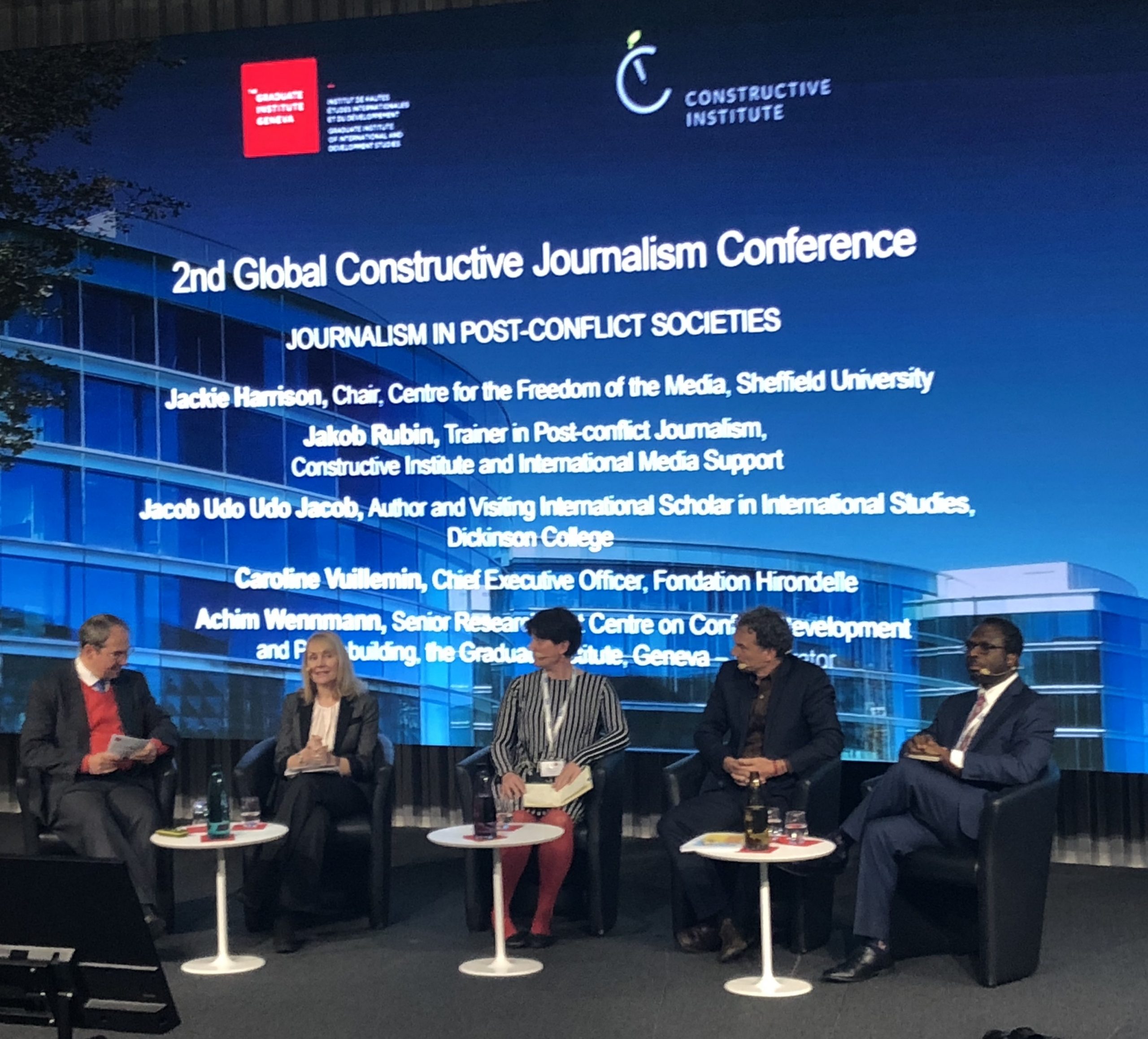
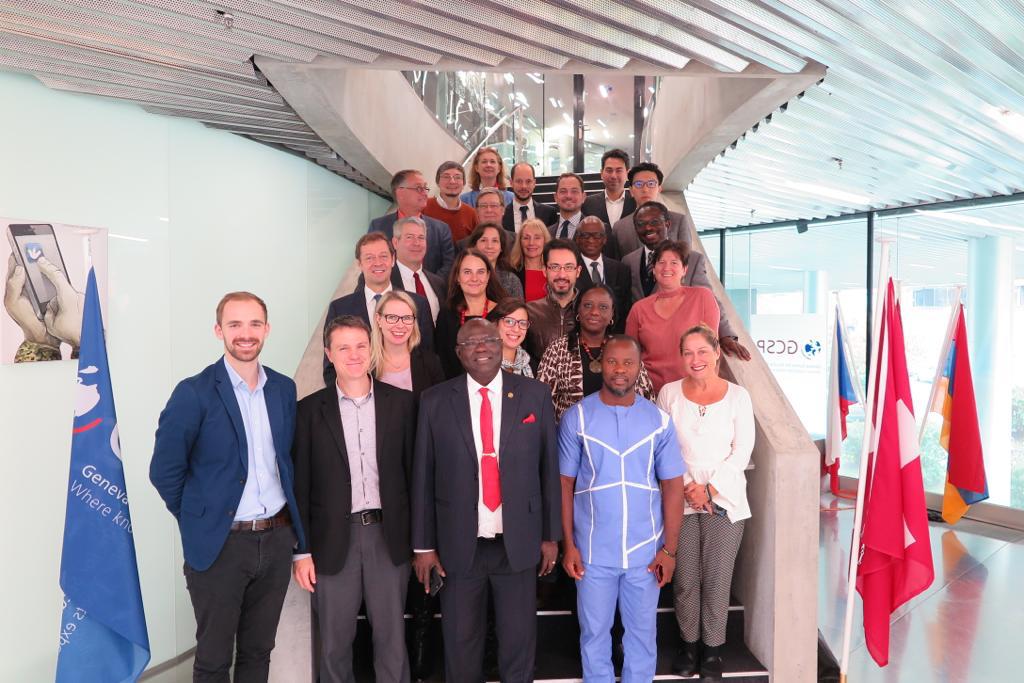
March 2019
March 8: UNESCO Chair participates in screening at united nations cinema in London
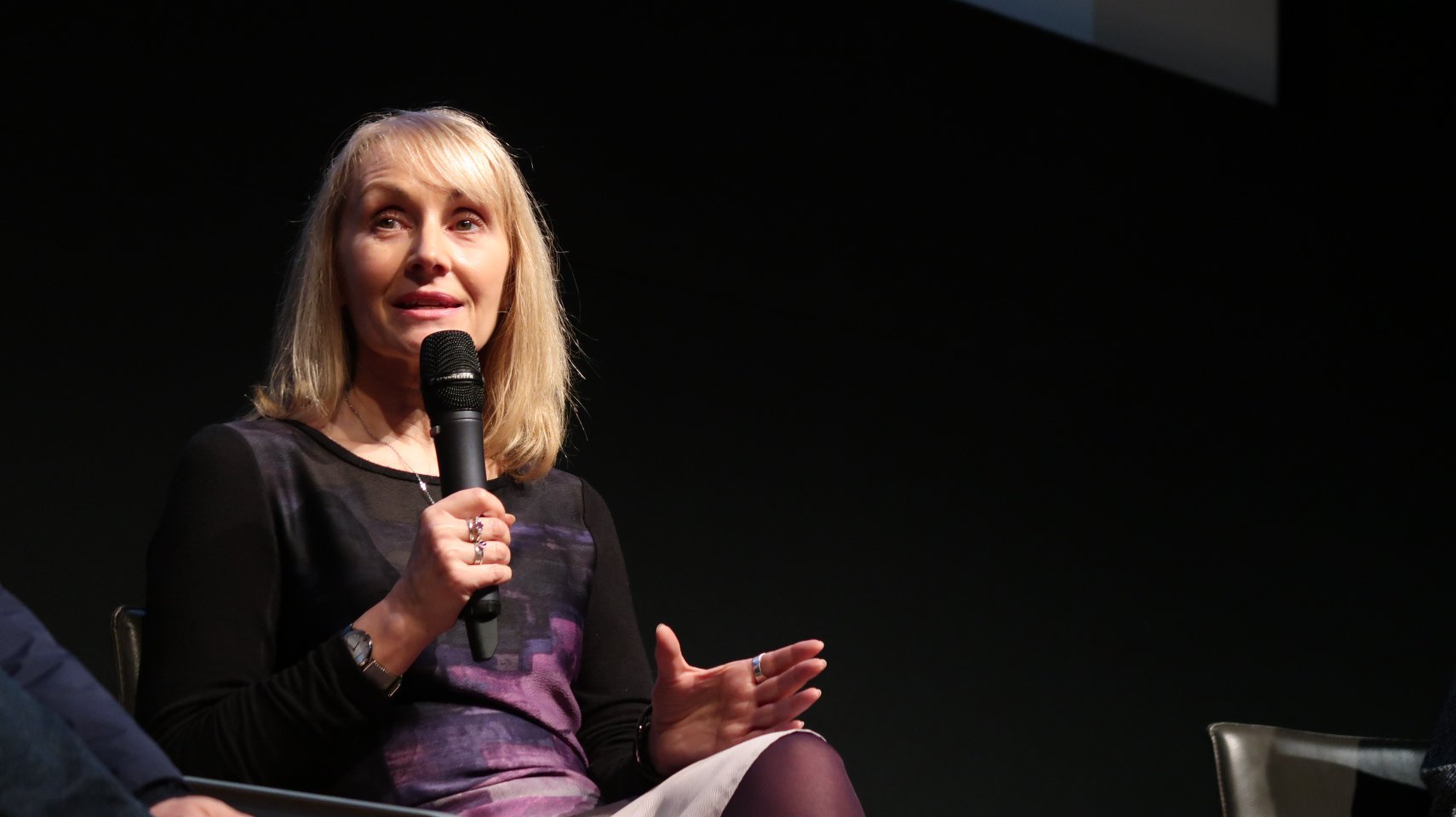
The UNESCO Chair participated in the screening of the film Under The Wire on killed journalist Marie Colvin at the United Nations Cinema. Based on photo journalist Paul Conroy’s book by the same title, the film documents his and war-correspondent Marie Colvin’s efforts to cover the plight of civilians’ struggle for survival in the city of Homs in war-torn Syria The event was held in partnership with The British Museum in London to mark International Women’s Day 2019.
May 2019
May 1-3: World Press Freedom Day Academic Conference in Addis Ababa, Ethiopia
As part of World Press Freedom Day, the fourth Academic Conference on the Safety of Journalists was held on 1 May. The UNESCO Chair delivered an opening address at the conference.
We have heard today from researchers that attacks are not just on journalists but on the very idea of free and independent journalism itself. The protection of journalists is a matter for us all! Threats and attacks on free and independent news journalism occupy a wide spectrum of repression and oppression across the world. Alarmingly, we also witness an increasingly antagonistic news media environment’ in democratic settings
The UNESCO Chair also emphasised the importance of research development, collaboration and exchange and the role that the JSRN plays: ‘Through this platform we can share knowledge and expertise in a true collaborative spirit to achieve greater success of academic input into the international stakeholder efforts on journalism safety and the issue of impunity. The UNESCO Chair also delivered a presentation with CFOM’s Dr Diana Maynard and Dr Sara Torsner on their ongoing research that aims to facilitate the comprehensive monitoring of violations against journalists in line with Sustainable Development Goal (SDG) 16.10.1 during the conference.
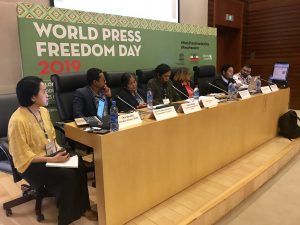
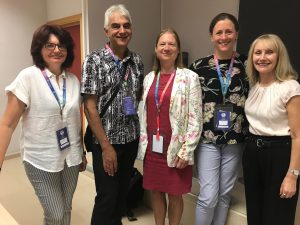
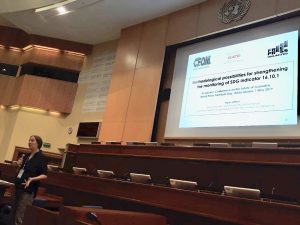
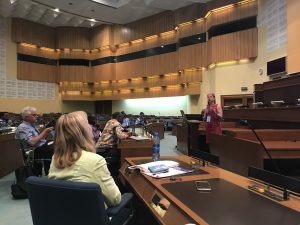
May 7: UNESCO Chair gives evidence at the Foreign & Commonwealth Office’s Foreign Affairs Committee on Global Media Freedom
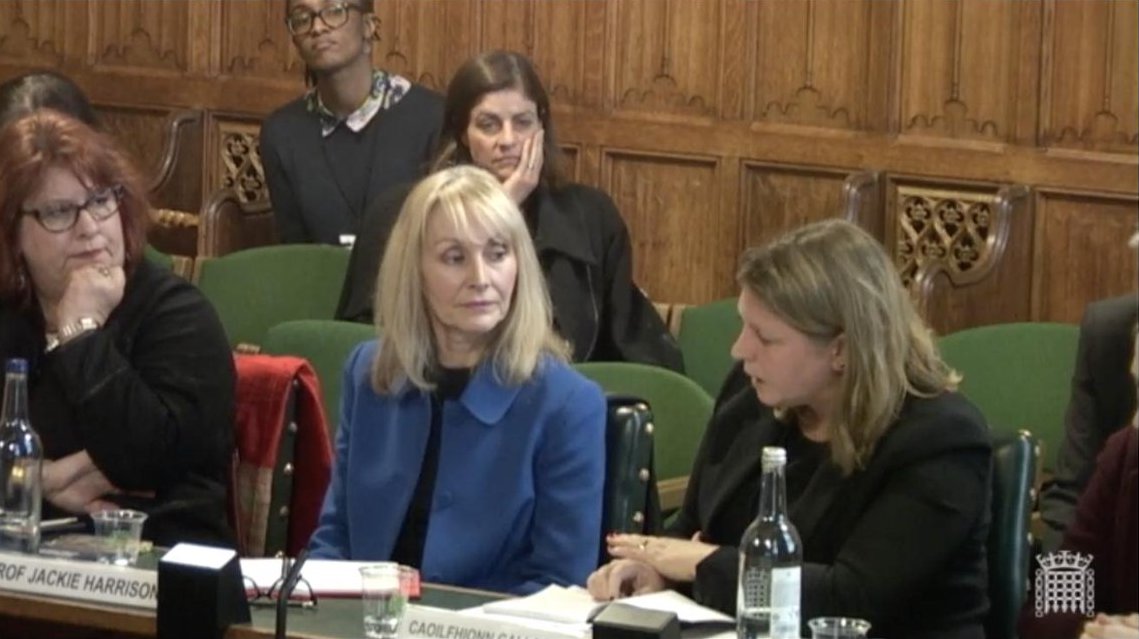
The UK committed to launching, what UK Foreign Minister Jeremy Hunt at World Press Freedom Day 2019 in Ethiopia described as ‘a global campaign to protect journalists doing their job and promote the benefits of a free media’. Within this context and recognised as an international expert on media freedom, journalism safety and impunity by the Foreign & Commonwealth Office, Professor Jackie Harrison was invited to give evidence on 7 May to the Foreign Affairs Committee on the issue of Global Media Freedom.
June 2019
24-28 June: International Summer School with Hallam University, Sheffield
The UNESCO Chair participated in a new international summer school at Sheffield Hallam University which was held in collaboration with CFOM. The school aimed to raise awareness among future journalists of vital issues relating to safety and impunity.
Journalists face unprecedented attacks, both lethal and non-lethal, around the world, and those who seek to stifle their freedom to report, often do so with impunity. It is vital that these crimes against journalists are made known and especially that future generations of news providers are aware of the dangers that they may face when reporting in potentially hostile situations. This international summer school has an excellent range of speakers who will address these issues and many more
Speakers included among others: Guy Berger, UNESCO, Director of Media Freedom Division; Jackie Harrison, UNESCO Chair in Media Freedom; Gill Phillips, Director of Editorial and Legal services, The Guardian; Sean Gallaghar, Index on Censorship; Jacob Udo-Udo Jacob, Expert on peace media and post-conflict resolution in Nigeria, Congo and Somalia, Elisabeth Witchel, Committee to Protect Journalists and Hannah Storm, CEO Ethical Journalism Network.
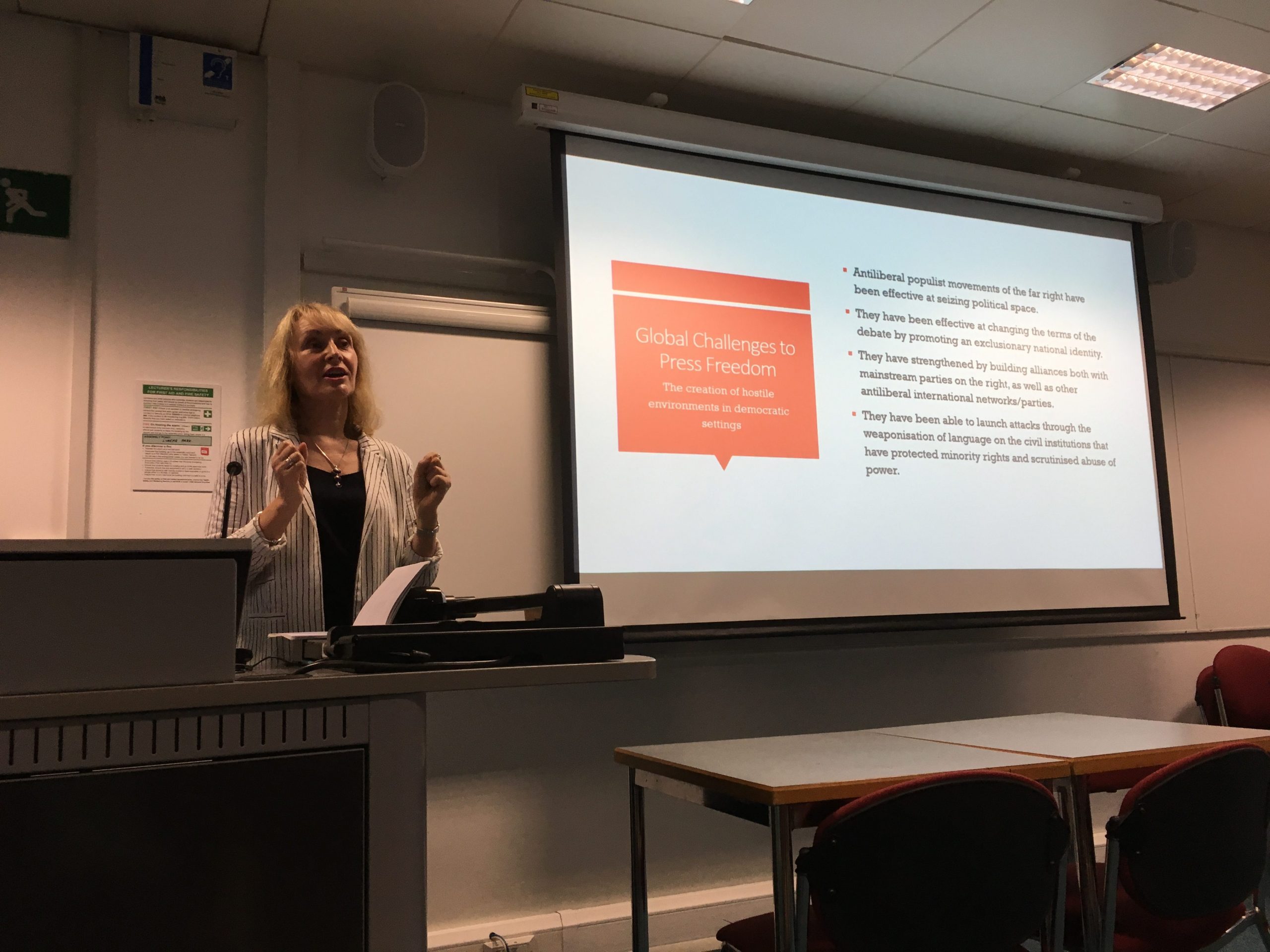
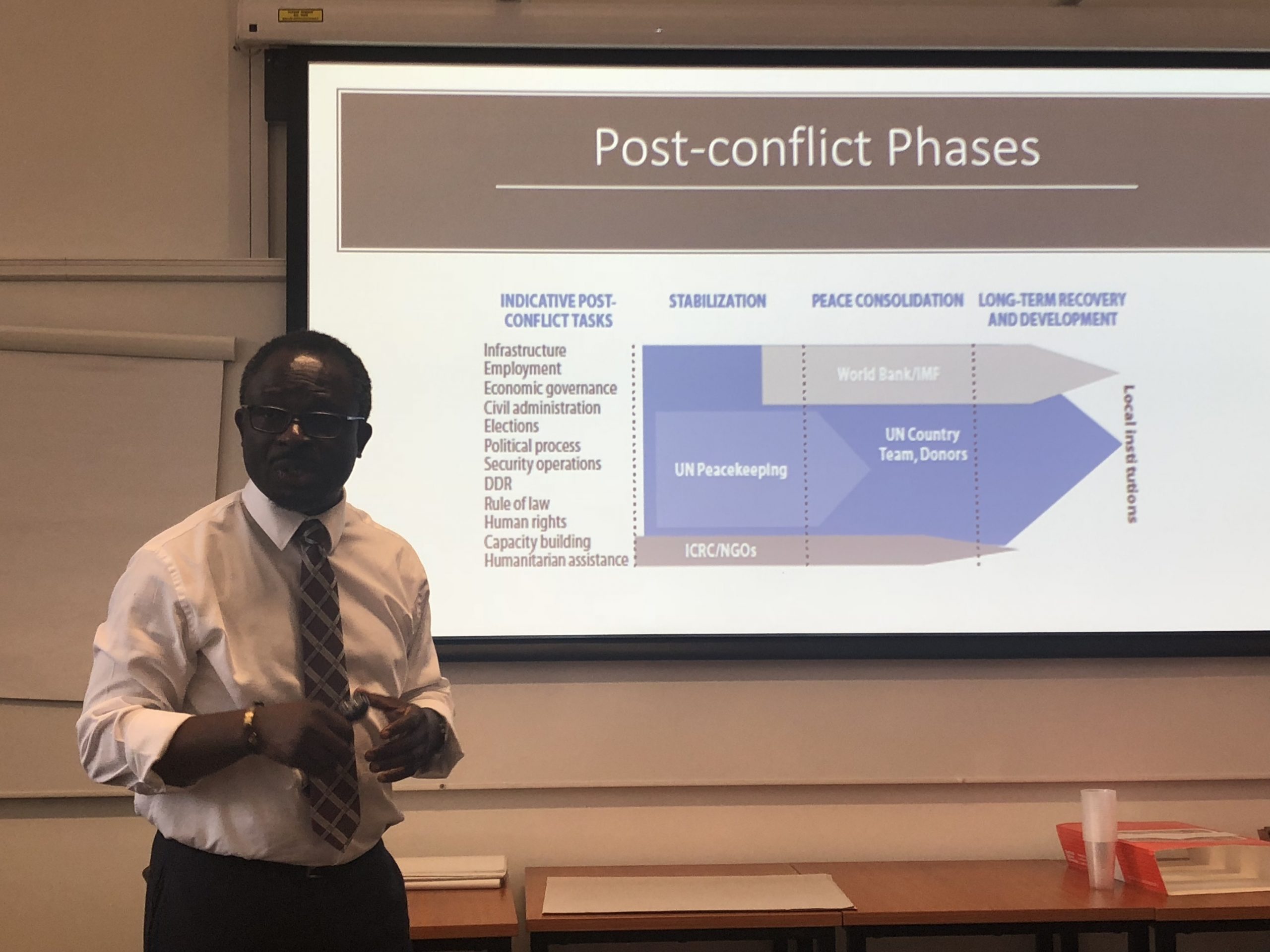
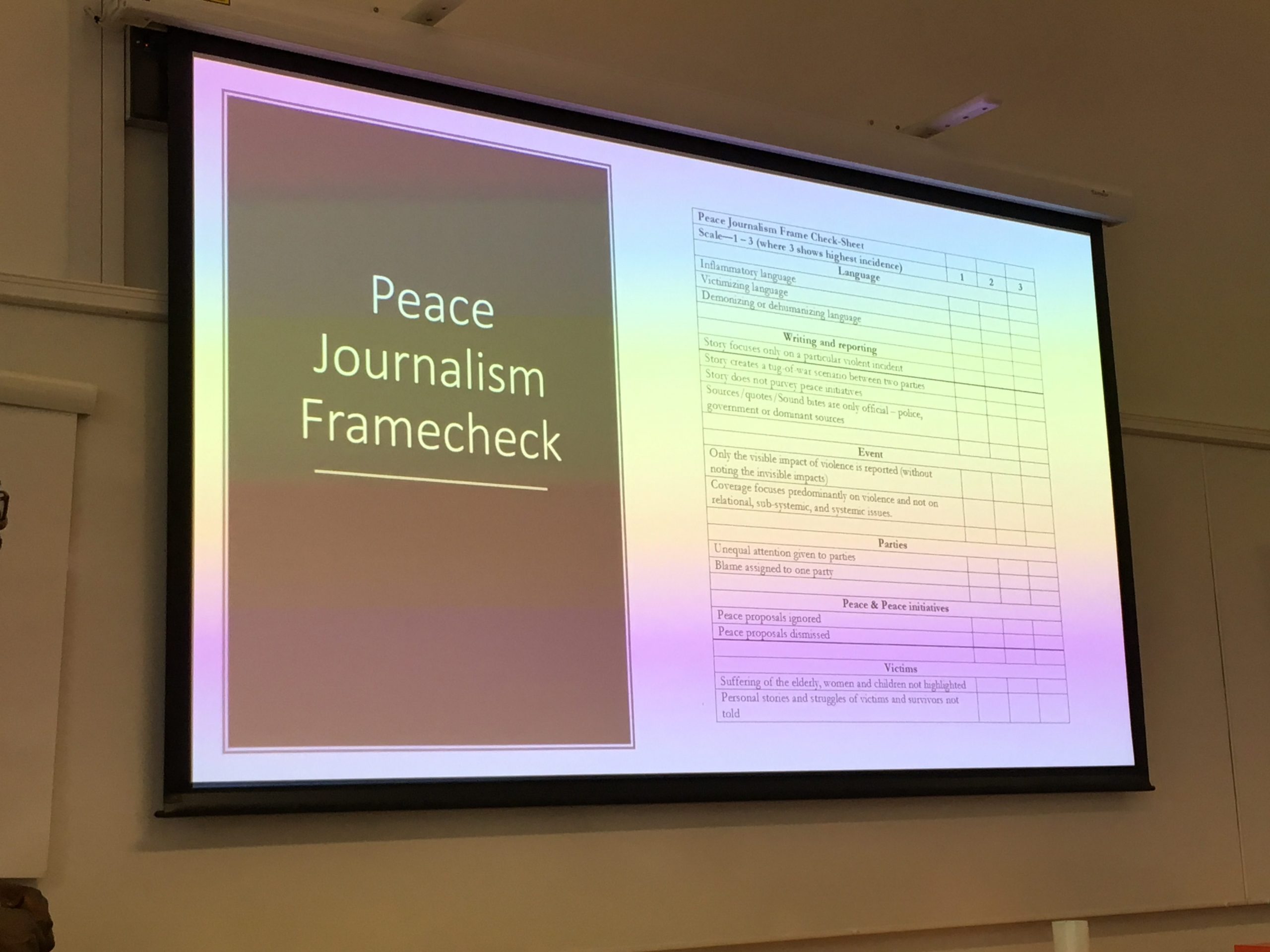
June 26-28: UNESCO Chair host workshop on the theme of media literacy
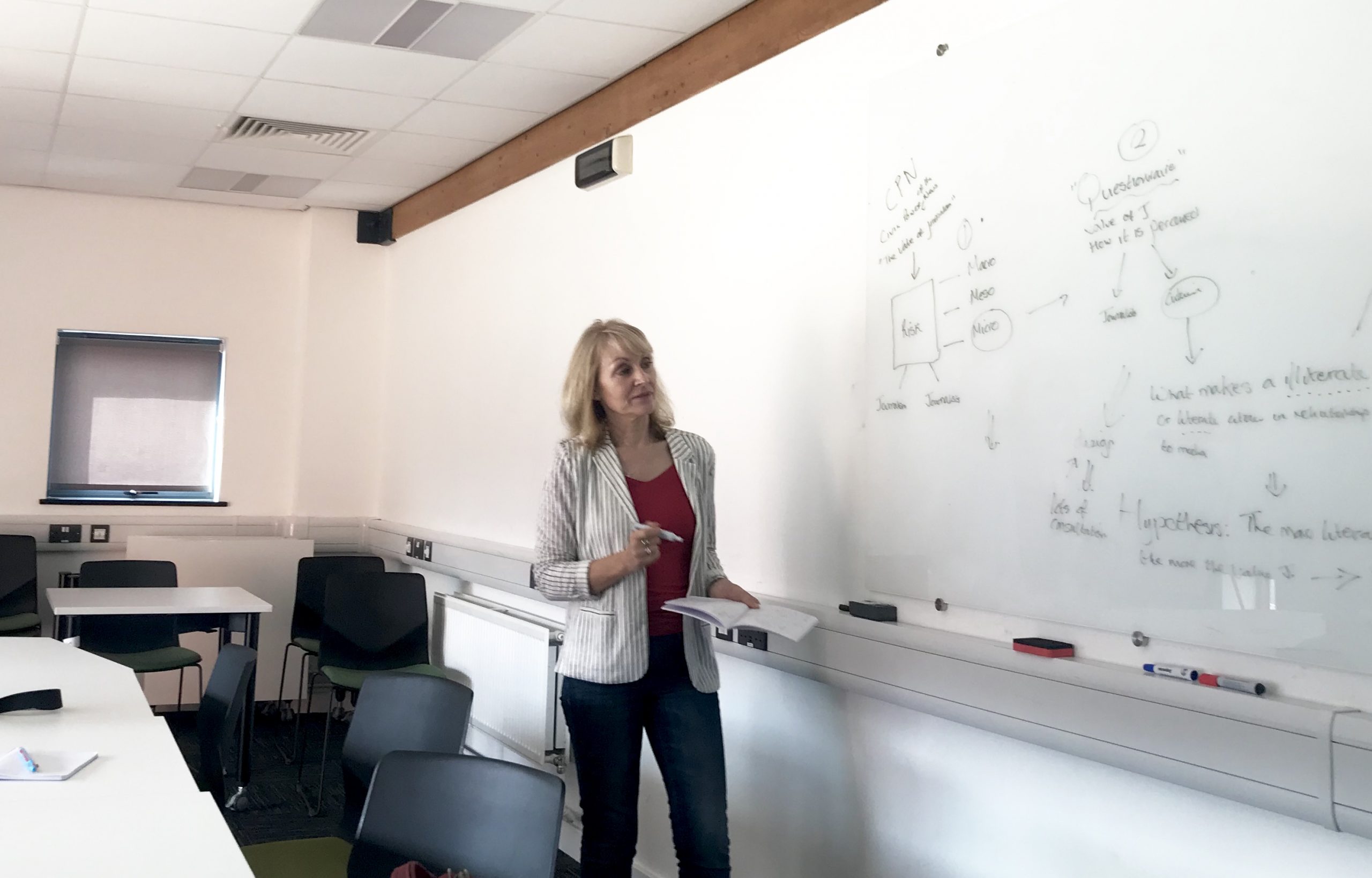
The UNESCO Chair held and funded a two-day long workshop on the theme of media literacy and journalism safety. The workshop was designed to facilitate exchange between academic researchers and journalism safety experts from civil society organisations. The workshop explored how to develop an understanding of media literacy as a dimension of what constitutes an enabling environment for the safe practice of journalism.
July 2019
July 7-9: UNESCO Chair and CFOM arrange JSRN panel at IAMCR conference
CFOM and the UNESCO Chair organised a panel for the IAMCR conference that took place in Madrid. The panel entitled ‘Monitoring violations against journalists as part of a co-ordinated response to attacks on their fundamental rights’, was held on July 9, 2019, and brought together CFOM researchers Jackie Harrison, Dr Diana Maynard and Dr Sara Torsner as well as Guy Berger, UNESCO Director for Freedom of Expression and Media Development and Albana Shala, programme co-ordinator at Free Press Unlimited.

July 10: Participation in Global Conference for Media Freedom
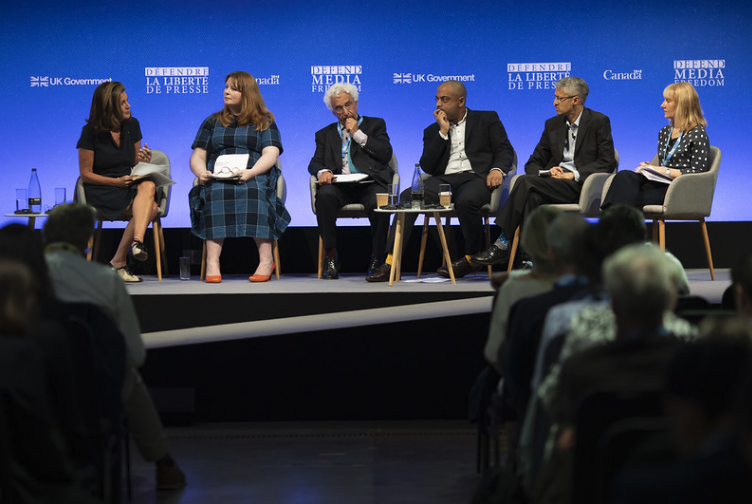
In February 2019, CFOM’s International Director, William Horsley, wrote a piece for The Conversation asking the then Foreign Secretary, Jeremy Hunt, to make the safety of journalists a flagship policy. The then Foreign Secretary then invited CFOM to attend the Global Conference for Media Freedom arranged by the UK and Canadian governments who were working together to defend media freedom and improve the safety of journalists who report across the world. The UNESCO Chair and CFOM’s International Director participated in a panel focusing on trust in the UK media.
September 2019
September 10: UNESCO Chair participates in seminar on media freedom hosted by the British Group Inter-Parliamentary Union
On 10th September Jackie Harrison UNESCO Chair on Media Freedom, Journalism Safety and the Issue of Impunity participated in a Seminar on media freedom hosted by the British Group Inter-Parliamentary Union at the Palace of Westminster, London.
The Seminar brought together parliamentarians from a wide array of countries and other key stakeholders to discuss parliament-driven solutions to issues affecting the ability of journalists to report freely without fear of reprisals.
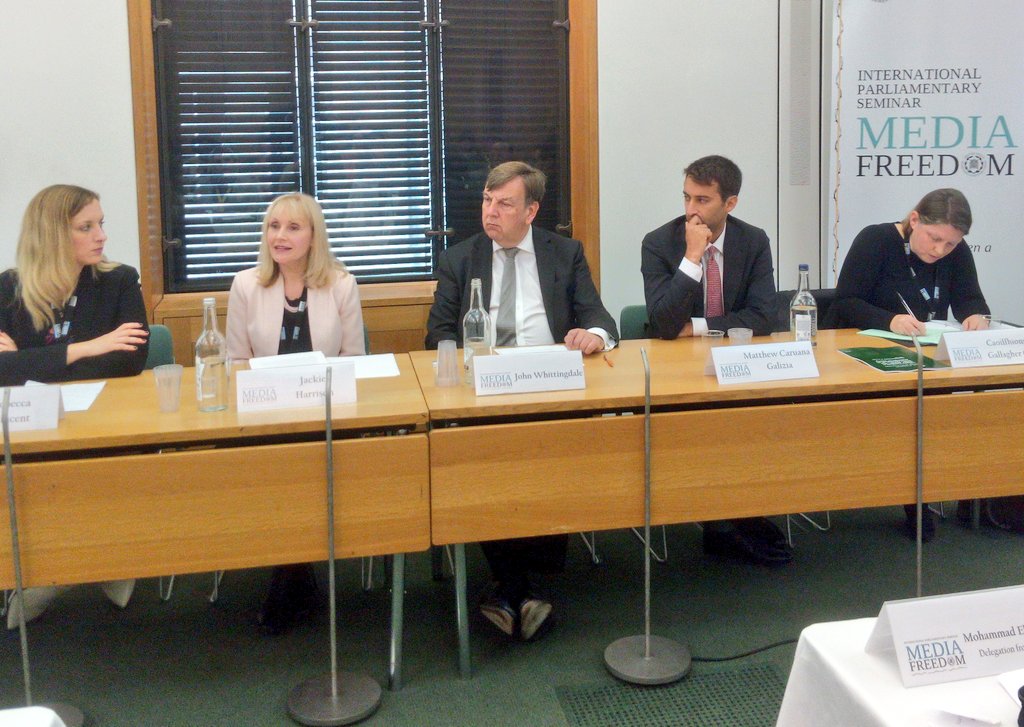
September 23-27: UNESCO Chair hosts Malaga UNESCO Chair team in Sheffield
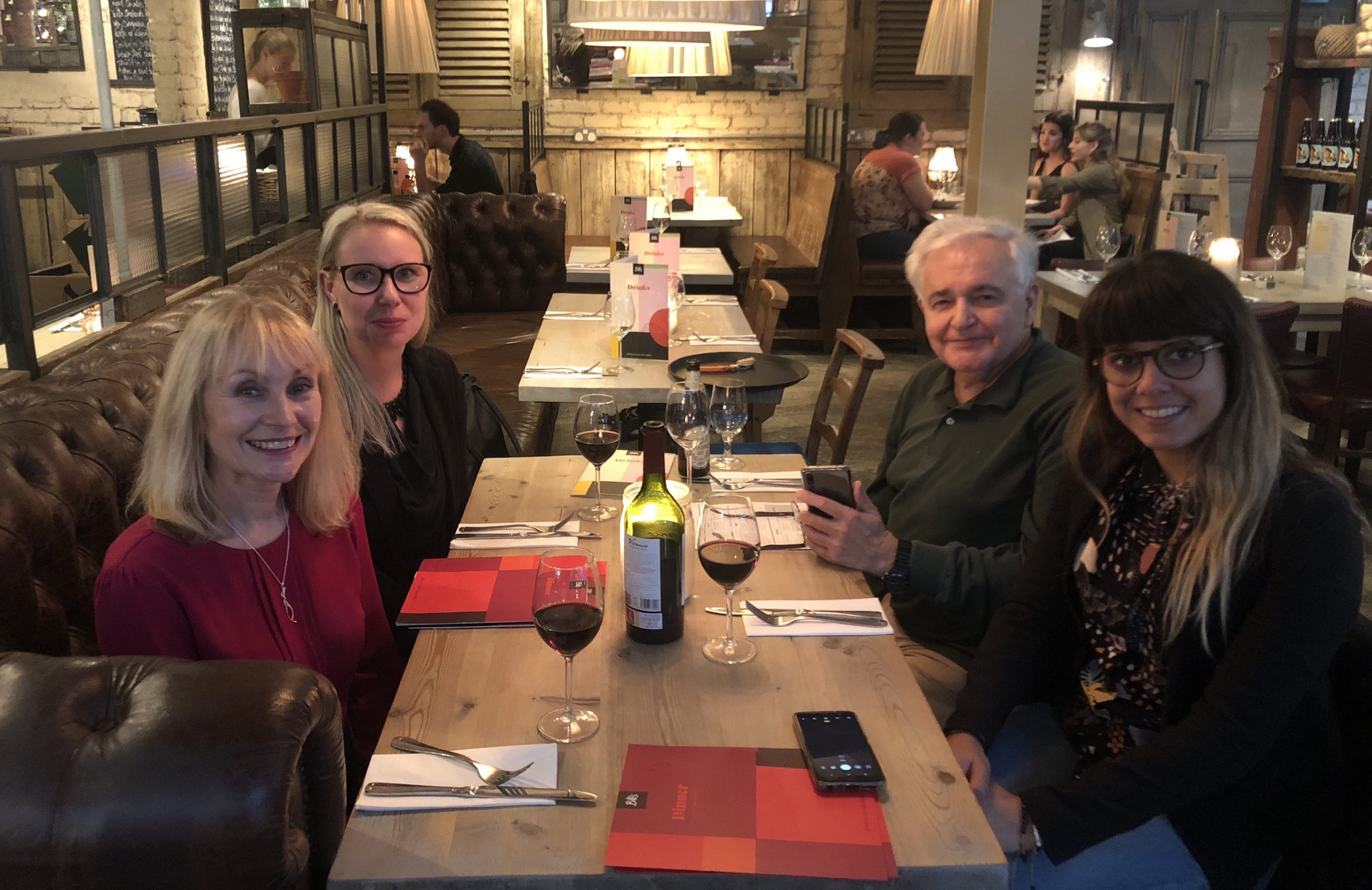
The Chair hosted Malaga UNESCO Chair team Bernardo Diaz and Ruth de Frutos in Sheffield marking a closer UNESCO Chair collaboration between the University of Malaga and the University of Sheffield with regards to a joint research project that investigates the experiential accounts of female Latin American journalists that are forced to work in exile.
November 2019
November 2: Commemoration of International Day to End Impunity
On International Day to End Impunity (IDEI) for crimes against journalists the UNESCO Chair wrote a blog piece for CFOM that encouraged the community of academic scholars to engage with issues of journalism safety and impunity from a range of perspectives to contribute to, expand and deepen current understandings and knowledge of these problems. Ultimately establishing a reliable knowledgebase is the very starting point for addressing the complex problems of safety and impunity, she wrote. Jackie Harrison also wrote that this is one of the aims with the Journalism Safety Research Network which seeks to work within and across disciplinary boundaries to build greater research capacity which comes from both depth and breadth of knowledge as well as new methodological innovations, alongside input from those who have practical knowledge and experience. Jackie Harrison also wrote the piece “Impunity is an assault on journalists, the public and the foundations of free and independent journalism. At stake is the communicative basis of society itself.” for the Rory Peck trust to commemorate IDEI.
November 11-15: International Journalism Week
From 11-15 November, CFOM and the School of Journalism, Media and Communication hosted International Journalism Week (IJW). The session was organised under the auspices of the UNESCO Chair in Media Freedom, Safety of Journalists and the Issue of impunity in the presence of the Chairholder, Professor Jackie Harrison, who heads the School. An expert panel focused on the theme of Seen and Unseen Barriers to Media Freedom. The panel featured a number of experts including: Maria Ordzhonikidze, Director of Justice for Journalists Foundation, Dr Sanae Fujita, Fellow at Essex University’s Human Rights Centre and consultant of David Kaye, UN Special Rapporteur on Freedom of Expression and Jon Silverman, Professor of Media and Criminal Justice at the University of Bedfordshire. The panel was moderated by CFOM’s International Director William Horsley.
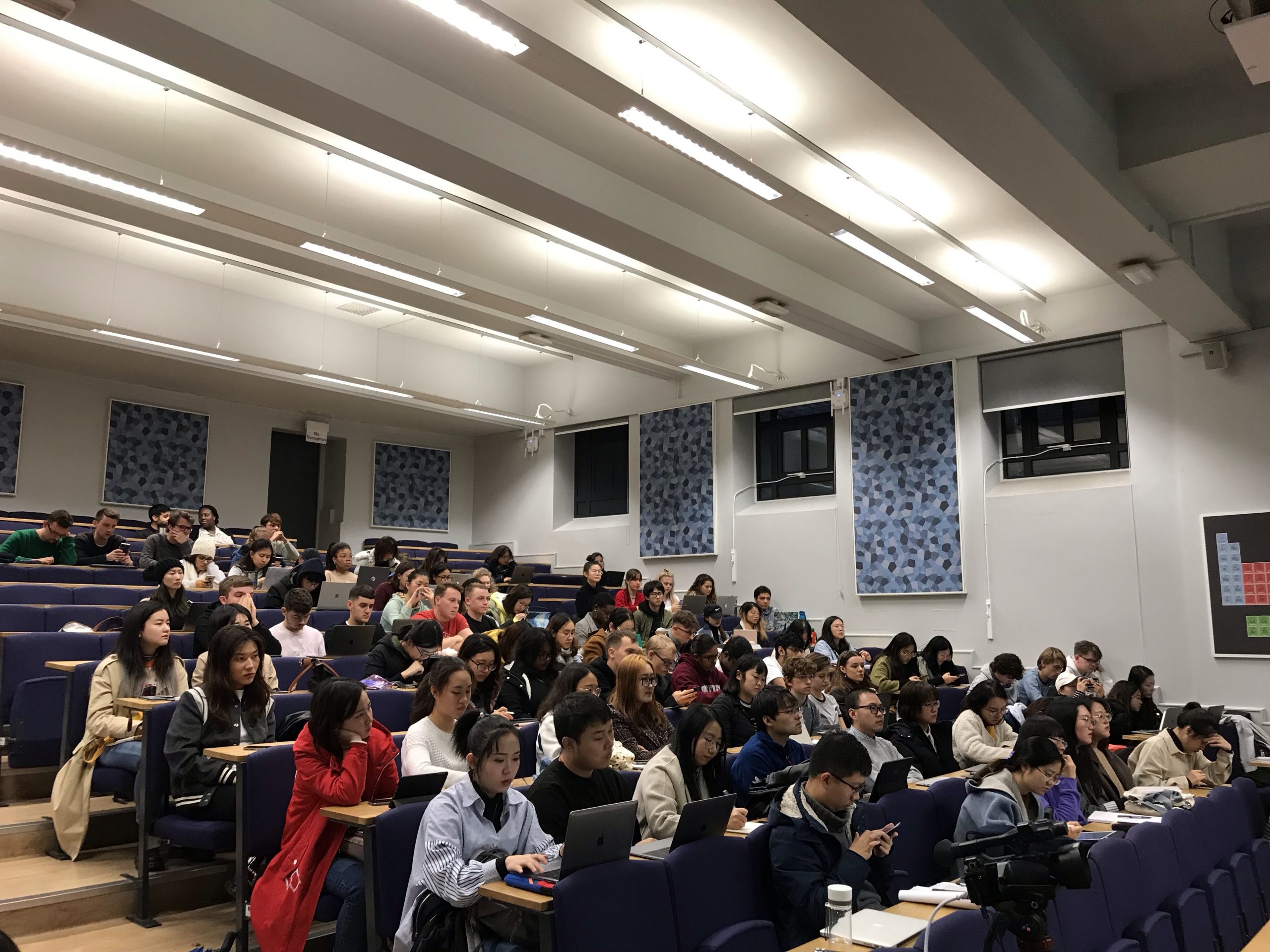
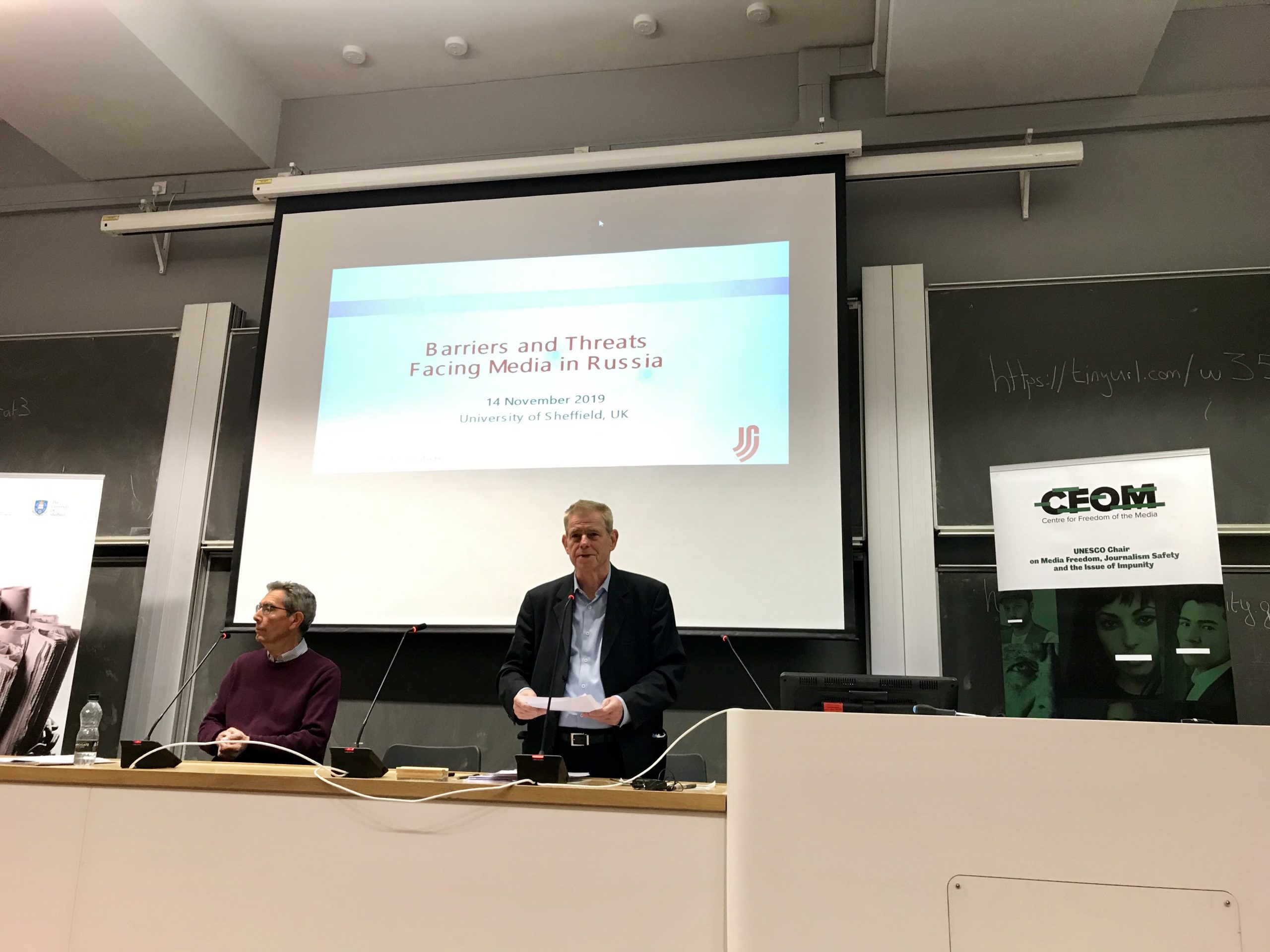
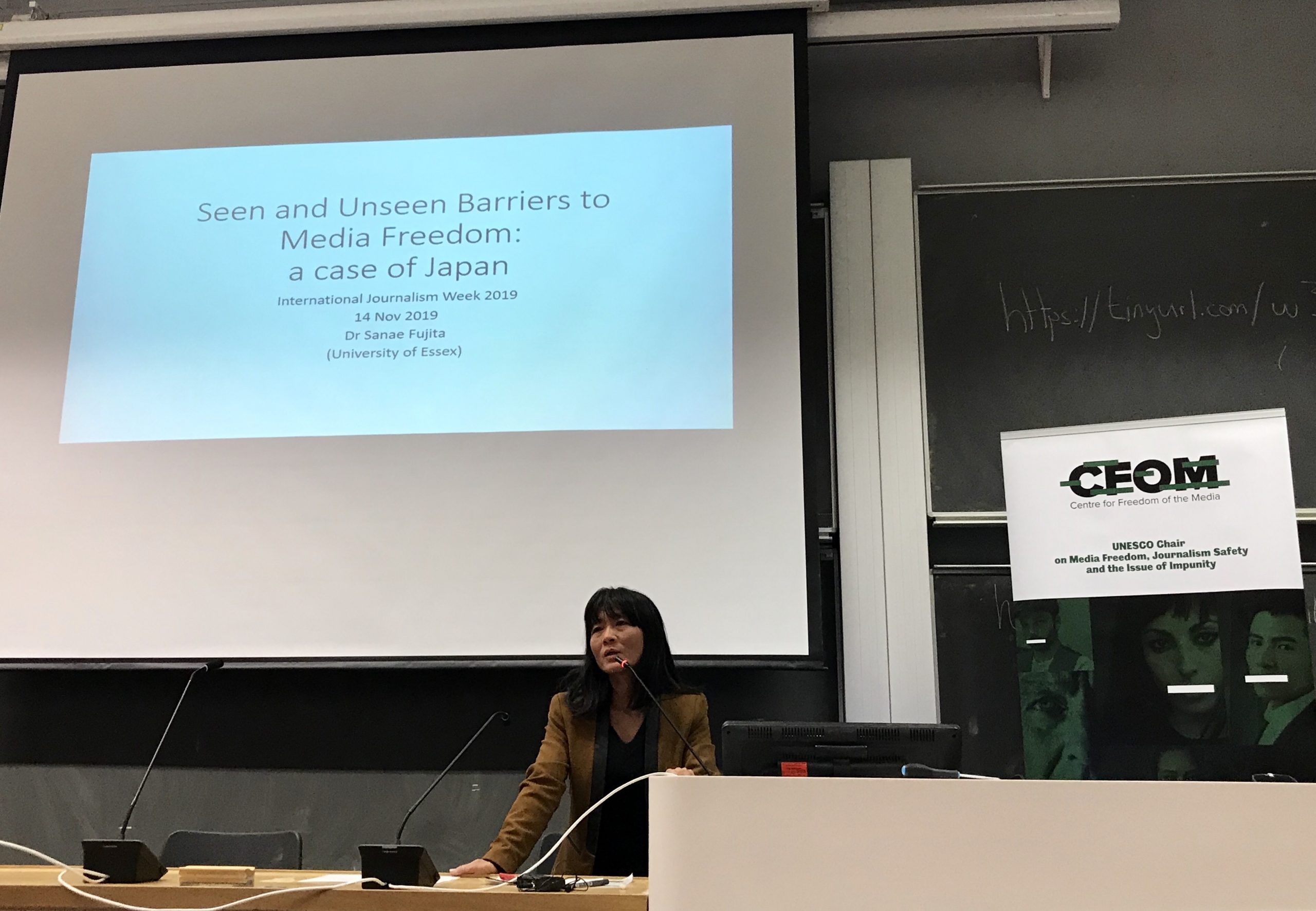
November 13: UNESCO Chair participates in International Press Freedom Award in Malaga
The UNESCO Chair visited UNESCO Chair colleagues in Malaga to participate in their International Press Freedom Award which was celebrated in Malaga and Madrid. The UNESCO Chair also spoke about the importance of academic research to the agenda to prevent violations against journalists and to counter impunity.
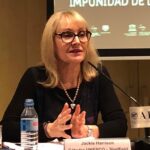
December 2019
December 10: Release of the UNESCO Chair’s book on The Civil Power of the News
In December, the UNESCO Chair’s latest book: ‘The Civil Power of the News‘ was released and published by Palgrave. The book presents an original conceptual framework to examine how news exercises its civil power by making civil and anti-civil judgements alongside exploring how the news interprets our invariant civil concerns of who we identify with, what we regard as legitimate and what risks we think we face.
February 2020
February 24: Publication of article on ‘Strengthening the monitoring of violations against journalists through an events-based methodology’
In February, the UNESCO Chair, Dr Diana Maynard and Dr Sara Torsner co-authored an article: ‘Strengthening the Monitoring of Violations against Journalists through an Events-Based Methodology‘. The article was published in Media and Communication and is a based on work that the UNESCO Chair and CFOM team has undertaken on the project concerning monitoring.
